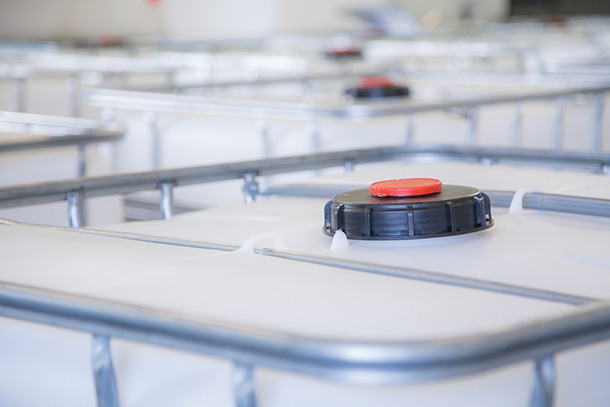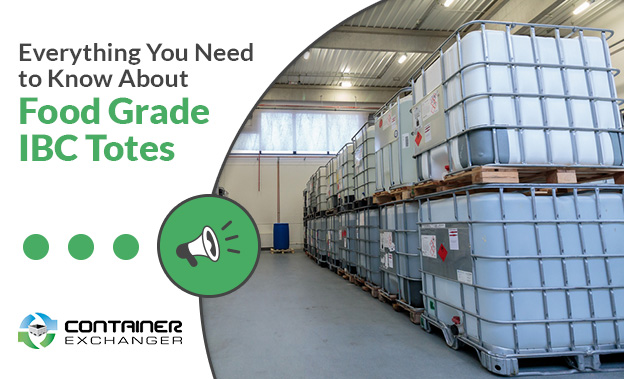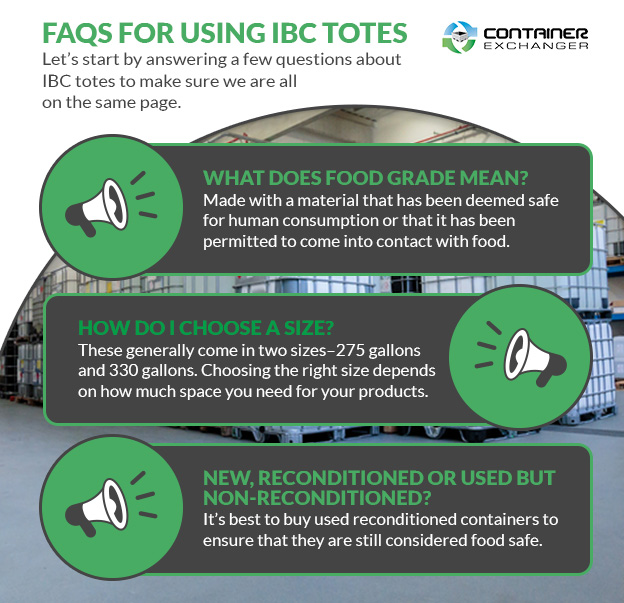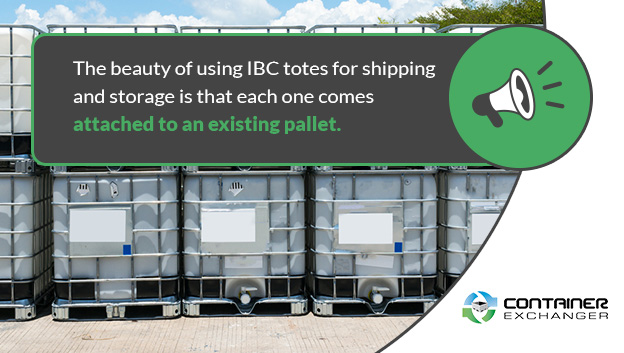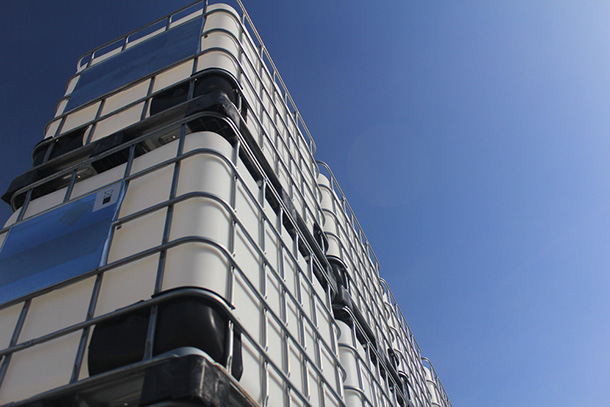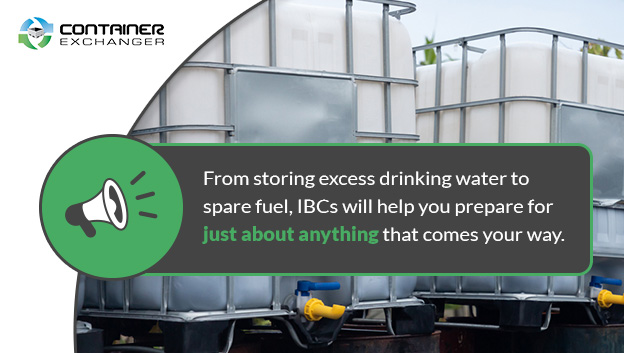Intermediate bulk containers (IBCs) remain one of the most popular storage containers in the global shipping industry. Made of exceptionally durable plastic, you can use IBCs to safely store and ship a range of wholesale products, including food and beverages. It’s one of the most reliable and cost-effective ways to move your products from point A to point B so you can spend more time focusing on the quality of your food and beverage products and less time fiddling with individual containers.
Shipping products that are meant for human consumption comes with its fair share of risks. You need to protect and insulate these products to make sure they do not contain any contaminants or debris that could be harmful to consumers’ health. Speed is also of the essence when it comes to transporting food products. If your packages are delayed, the contents could easily spoil before they reach the end consumer.
Food grade IBC totes will help you improve the overall quality of your food products and make sure they arrive on time. If you are new to the world of IBCs, here’s all the information you’ll need to get started:
FAQs for Using IBC Totes
Let’s start by answering a few questions about IBC totes to make sure we are all on the same page.
- What does food grade mean?
When we say “food grade,” we mean that the container has been made with a material that has been deemed safe for human consumption or that it has been permitted to come into contact with food. Certain materials must be inspected to make sure they do not contaminate food products or leave traces of debris that could be harmful to consumers.
IBCs must be made with special materials to receive food grade status, such as steel or high density polyethylene, and must be free of bisphenol A, or BPA, which can lead to fertility problems, heart disease and other medical conditions.
Food grade is not the same as food safe. Some containers that were manufactured to store and transport food might be unfit for these purposes if they have not been thoroughly cleaned or treated. For example, you can’t fill an IBC tote with petroleum and then use the same container to ship water to another facility. You must first thoroughly clean and wash your containers before using them for food. Avoid storing toxic industrial products in food grade containers to prevent contamination.
- How to choose a size?
Food grade totes generally come in two sizes–275 gallons and 330 gallons. Choosing the right size all depends on how much space you need for your products. If you’re looking to get as many gallons or pounds of food and beverage products out the door, the larger size will likely serve you and your business well. You and your team can quickly load and move several bulk containers to improve efficiency instead of having to manage dozens of containers at the same time. With fewer containers to keep track of, transporting in bulk also makes it easier to monitor your inventory.
Avoid going with the 330-gallon size if you don’t need that much room for your products. Choose food grade 275-gallon IBC totes instead to minimize free space. It’s best to fill these containers until they are full so the fluid doesn’t splash or move around as much during transit. If you only fill your container halfway, the weight could easily shift to one side, throwing the entire load off balance.
Shop Food Grade 275 Gallon IBC Totes
- Choosing between new, reconditioned and used but non-reconditioned
If you’re looking to save some money, you can always try buying used food grade IBCs. However, you need to keep a few things in mind before you start sending your products off in used IBCs. First off, there’s a difference between used reconditioned containers and non-reconditioned containers. Reconditioned containers have been inspected and treated by a professional and you don’t have to worry about using dirty or contaminated food grade containers that aren’t safe for human consumption.
When shipping food and beverage products, it’s best to buy used reconditioned containers to ensure that these items are still considered food safe. If you buy non-reconditioned containers, there’s a chance they may contaminate your food products, especially if these containers were previously used to ship or store industrial chemicals and other hazardous products.
Used reconditioned containers tend to be a bit more expensive than non-reconditioned containers. If you don’t need to ship or store food products, you may not need to buy reconditioned IBCs, but make sure they do not have any leaks or holes in them before putting them into your supply chain.
Benefits and Features
The benefits of IBCs are clear. Storing your products in these containers will help you transform your warehouse and storage space for the better.
- Easy transportation
The beauty of using IBC totes for shipping and storage is that each one comes attached to an existing pallet. These containers are made with rigid metal cages that insulate your products while keeping them attached to the pallet underneath. You don’t have to worry about losing track of your shipping gear or having to swap out your pallets over time.
When it comes to loading and unloading, your workers can easily pick up and move these containers with a forklift. Just keep the slots of the pallet facing out and your team can pick up these containers in a matter of minutes.
- Efficient storage
IBCs are commonly used to improve warehouse logistics in the food and beverage industry. Storing your products in bulk will help you clear up space in your facility so your workers have more room to complete the task at hand. Condensing your containers helps your team quickly make sense of current inventory levels without getting lost in a maze of products and labels.
You can also stack IBCs right on top of each other to make the most of your limited space. Thanks to the included pallet, your team can still pick up one container at a time without endangering the rest of the stack.
If this is your first time storing food and beverage products in an IBC, use these food warehousing storage tips to get started.
- Versatile and flexible
IBCs are known for their versatility, helping you do more with your fleet of containers. You can use these containers to ship and store a variety of products, including food and beverages as well as industrial products, like solvents, chemicals and fuel. Again, it’s important to designate containers that are being used for food and those that are being used for hazardous products.
If your company ships and stores a range of food and beverage products, these containers will help you keep up with shifting demand. If one of your products becomes more popular than another, you can easily devote the same container to another product, as long as it has been thoroughly cleaned.
When it comes to shipping and storing temperature-controlled products, you’re probably wondering, “Are food grade IBC totes temperature-controlled?” The answer is yes–if you know what to look for. You will need to find stainless steel IBCs that will keep your products the perfect temperature during transit. These containers look more like small refrigerators than traditional IBCs. They are designed to insulate your products from excess heat and moisture so you don’t have to worry about delivering expired or soiled food products.
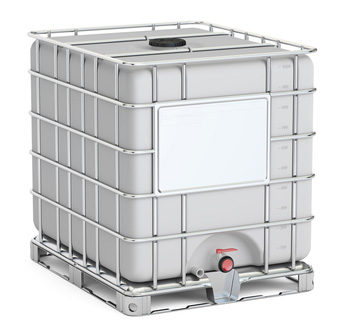
- Durable and long-lasting
They are made with highly rigid materials so you don’t have to worry about these containers falling apart over time. Keep them in a dry, room temperature location to prevent damage to your products and containers. If you treat your containers with care, you can use them again and again to reduce your shipping and storage costs.
If you no longer need your IBC totes, consider reselling them to another company or individual to recoup some of the initial costs.
- Can be reconditioned
If you’re using these containers to ship and store industrial products that may be hazardous to consumers, you may be worried that you’ve already shortened the life of your IBCs. However, you can still use these containers for food and beverage products as long as you have them reconditioned by a professional. This person will use powerful industrial cleaning agents on the inside and outside of the container to make sure it can come into contact with food products without endangering the health and safety of consumers.
Consider having your containers reconditioned if you plan to use them to ship and store new products.
- Reduced costs
Using IBCs will help your business save money in more ways than one. If you buy used containers and continue reusing your existing IBCs, you can reduce your shipping and storage costs over time.
Stacking your containers on top of each other and getting your inventory off the ground will help you conserve space and make room for new products without increasing your overhead.
You can even use these containers to reduce your labor costs, one of the most expensive aspects of managing a warehouse. Your team won’t have to work as hard when loading and unloading your products. They can use forklifts to quickly move items without putting their health and safety at risk by bending over or lifting packages by hand. Your team also won’t have to waste precious time looking for pallets when they are already attached to your containers.
IBCs are here to make your entire warehouse run more efficiently so you can save money where it counts.
- Easy access
IBCs also come with included nozzles so you can quickly dispense your products in the field. Just turn the knob to release some of the contents. You can control the flow to make sure you only extract what you need. This helps you prevent leaks, spills and other accidents that can damage your equipment and the local environment.
- Added peace of mind
At the end of the day, IBCs will likely help you and your team sleep better at night. These containers are designed to safeguard some of the most dangerous and hazardous products on the market today. They are made with highly durable materials with wire caging to prevent the contents from spilling or leaking onto their surroundings.
Nothing could be worse than watching one of your containers spill valuable cargo onto the floor or finding out that your products have polluted the local environment. These containers will help you protect and insulate your products, thus improving the overall safety of your facility.
Common Uses for IBC Totes
IBCs tend to show up in a wide range of industries, most notably the food and beverage industry. It’s not uncommon to see large IBCs filled with drinking water, liquid ingredients, grains and other essential food items.
However, these containers are also used in some of the most dangerous and high-stakes industries in the world. They are often used to store and transport flammable materials that could easily combust if they are not handled properly. They can also stand up to chemicals and industrial agents that would normally cause other containers to corrode and rust.
You may see them in the automotive industry, chemical plants and water treatment facilities, utility companies and other industries that keep our nation going strong.
Regardless of the nature of your business, you can find a way to put these sturdy containers to good use. From storing excess drinking water to spare fuel, IBCs will help you prepare for just about anything that comes your way.
You won’t have to spend as much time worrying about the integrity of your products or whether your team is properly managing your inventory. Use IBCs to streamline virtually every aspect of your supply chain.
